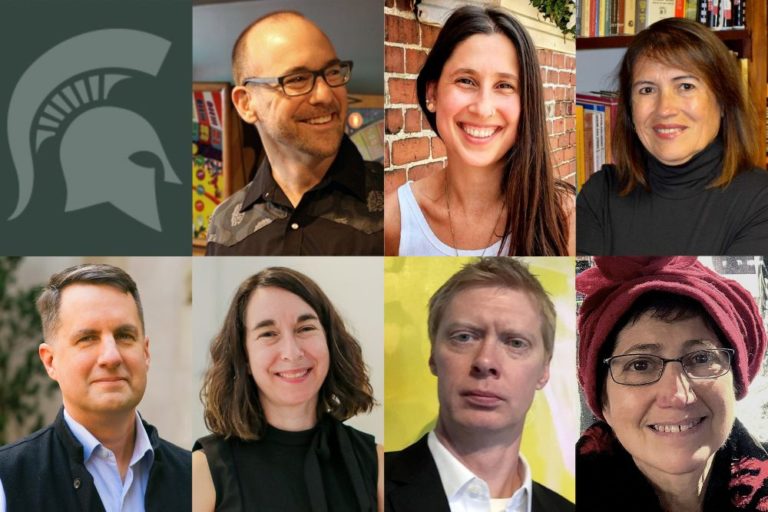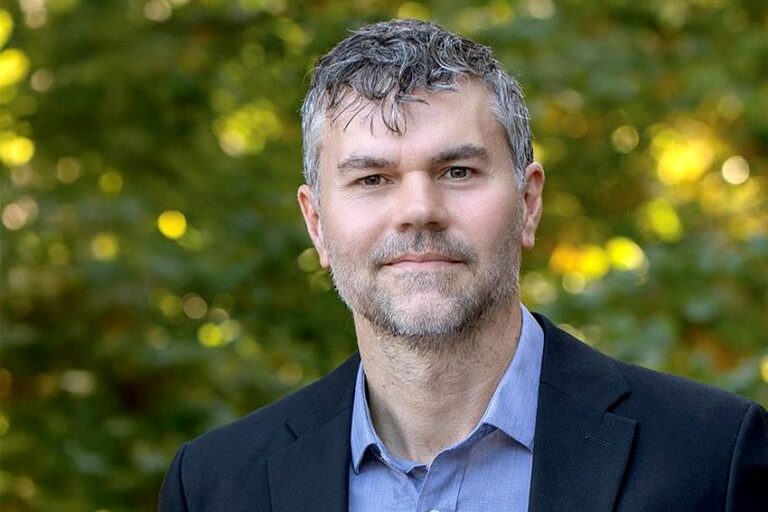Jon Keune, Associate Professor of Religious Studies at Michigan State University, received a Fulbright Global Scholar Award for the 2022-23 academic year that will support his research on the effects of migration on the religious identities of Buddhists.
As a Fulbright Scholar, Keune will travel to the University of Tokyo, University of Oxford, National Taiwan University, and a Buddhist school in central India to conduct ethnographic research on individuals from different countries who identify as Buddhists.
Keune’s project, titled “Transnational Buddhism and Dalit Migration,” will explore the idea of how a shared religious identity, specifically Buddhism, brings diverse people together and, as they communicate, promotes navigation through major differences.
“My goal is to learn how migration and changed contexts shape people’s religious identities, especially when the migrating group is responding to a history of persecution and trauma in their homeland.”
“My goal is to learn how migration and changed contexts shape people’s religious identities, especially when the migrating group is responding to a history of persecution and trauma in their homeland,” Keune said. “I’m interested to see what Buddhism means to them as they move to different countries, describe themselves to new kinds of neighbors, and relate to other kinds of Buddhists who have no knowledge of caste and Indian history.”
Keune’s research stems from the work of Bhimrao Ramji Ambedkar, a Dalit, which is an Indian term for an “untouchable,” a historically stigmatized and persecuted group of people who were regarded as the lowest rank in the caste system. Ambedkar was an attorney, author, political advocate, and social reformer of the 20th century who spoke out against the caste system and the practice of untouchability.

“In 1956, Ambedkar and several hundred thousand Dalit followers converted to Buddhism as part of their quest for social equality. For the followers of Ambedkar, who number roughly 8 million today, Buddhism represents a critique of caste and promotion of equality,” Keune said. “Ambedkar and his followers responded to their particular Indian context, which led them to interpret Buddhism rather differently than Buddhists in other parts of Asia that had their own longstanding traditions.”
In the past 30 years, Ambedkar Buddhists have interacted much more with Buddhists from other countries, engaging in building projects, migrating for work, and enrolling in international universities.
“Not only are Ambedkarite, Taiwanese, Japanese, and British Buddhists participating in distinct Buddhist traditions with their own histories, they do this while taking for granted their own local social structures, national political histories, socio-economic status, and cultural sensitivities about religion, spirituality, science, and secularity,” Keune said. “It’s only when people from different backgrounds meet, try to understand each other, and interact while following their own agendas, that they become aware of their assumptions.”
“This project is important because this group of Ambedkarites is an outstanding example of how a historically marginalized and persecuted group is reckoning with their difficult history, asserting their own identities and concerns, and trying to chart a new and more liberated path into the future.”
Keune plans to learn more about the unique life stories of individuals while simultaneously learning about the empowering story of a group of people who were determined in their pursuit for equality.
“This project is important because this group of Ambedkarites is an outstanding example of how a historically marginalized and persecuted group is reckoning with their difficult history, asserting their own identities and concerns, and trying to chart a new and more liberated path into the future,” Keune said.
Keune first visited Ambedkar’s Western Indian origin in 1995 and has gradually worked on this project since 2014 after visiting Nagpur, India, a city containing a large population of Ambedkar Buddhists due to it being the city where Ambedkar officially converted into the religion.
“Over the years, I’ve met more members of the Ambedkarite community, became involved with some of their programs, helped organize a celebration of Ambedkar’s 125th birth anniversary at MSU with the local community, and imagined how this research project would come together,” Keune said. “Now with the Fulbright and a sabbatical year ahead, I’m excited to focus on this full-time and dive deeply into the research.”
Written by Kseniya Lukiy

